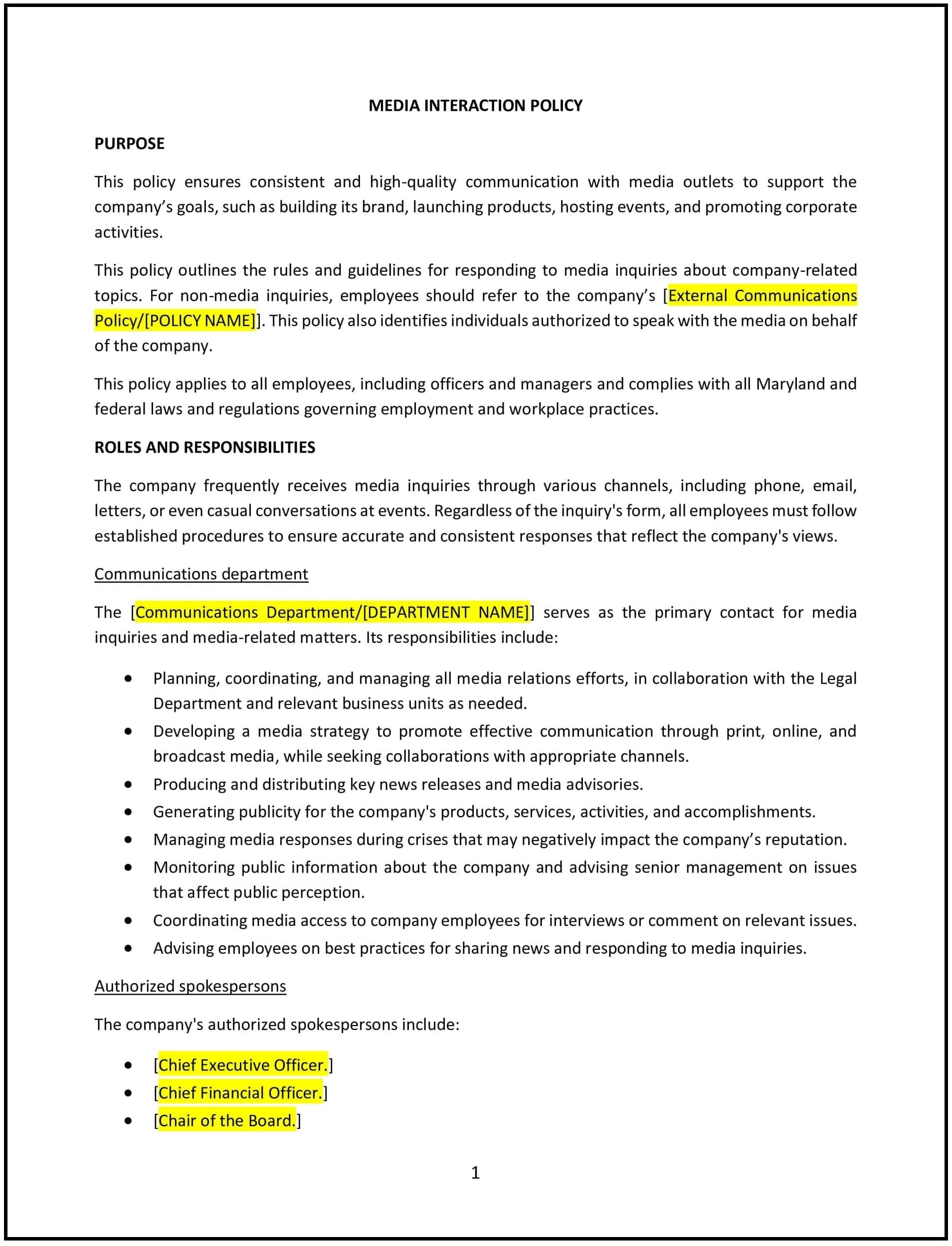Got contracts to review? While you're here for policies, let Cobrief make contract review effortless—start your free review now.

Customize this template for free
Media relations policy (Maryland)
This media relations policy is designed to help Maryland businesses manage interactions with the media to ensure accurate, consistent, and professional representation of the company. It outlines procedures for responding to media inquiries, designating spokespersons, and maintaining confidentiality of sensitive information.
By adopting this policy, Maryland businesses can protect their reputation, control public messaging, and build positive relationships with the media.
How to use this media relations policy (Maryland)
- Define authorized spokespersons: Identify individuals, such as executives or communications personnel, who are permitted to speak on behalf of the business.
- Establish approval processes: Require prior approval for media statements, interviews, or press releases to maintain consistency in messaging.
- Provide media response protocols: Outline steps for responding to media inquiries, including how to refer journalists to the appropriate spokesperson.
- Address confidentiality: Prohibit the sharing of proprietary, sensitive, or non-public information with the media without authorization.
- Include crisis communication guidelines: Specify procedures for handling media relations during crises, such as appointing a crisis communications team.
- Offer media training: Provide training for spokespersons to ensure they communicate effectively and professionally with the media.
- Reflect Maryland-specific considerations: Incorporate local considerations, such as engaging with Maryland-based media outlets or adhering to state communication laws.
Benefits of using this media relations policy (Maryland)
Implementing this policy provides Maryland businesses with several advantages:
- Protects reputation: Ensures consistent and professional communication with the media.
- Controls messaging: Prevents the dissemination of inaccurate or unauthorized information.
- Enhances crisis management: Provides clear protocols for addressing media inquiries during emergencies.
- Builds trust: Establishes positive relationships with media outlets by maintaining transparency and responsiveness.
- Reflects Maryland context: Aligns with state-specific needs and community engagement strategies.
Tips for using this media relations policy (Maryland)
- Communicate internally: Ensure all employees know the designated spokespersons and the process for handling media inquiries.
- Keep statements clear and concise: Ensure all media statements align with the company’s core messages and values.
- Document media interactions: Maintain records of all media engagements for future reference and accountability.
- Update crisis communication plans: Regularly review protocols for media engagement during emergencies or sensitive situations.
- Stay informed: Monitor local and national media trends to adjust messaging strategies as needed.